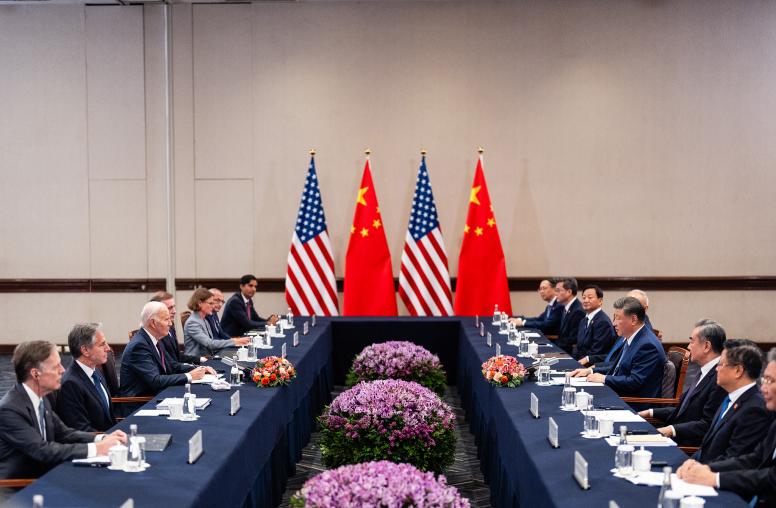PeaceTech Exchanges are workshops organized by the U.S. Institute of Peace to empower peacebuilders in conflict zones with low-cost, easy to use technology.

These highly interactive conferences bring peacebuilders together with local and international technology for social good experts. Over the course of two days, participants learn about a broad array of tools to enhance their work and receive personal training for technologies they believe will assist them in their work. By the end of each event, attendees have formed teams with like-minded civil society organizations to tackle projects together, incorporating technology learned at the PTX into their work. PTXs also foster project design - guiding participants in how to define their problems, developing solutions, and creating projects that implement technologies learned at the workshop.
Supporting Local Peacebuilders
A key feature of PeaceTech Exchange is helping projects conceived during the workshops get off the ground through through a series of micro-awards, selected through a process that supports well-thought out proposals for sustainable projects. Among the projects PTXs have supported are the creation of crowdmaps to track violence against journalists, websites that host the stories of citizen journalists within communities of internally displaced people, and initiatives that track legislation and activities of local government. Through supporting peacebuilders on the ground, the PTX program has an impact long beyond the workshop event.
Success Stories
The PeaceTech Exchanges are effective, not simply because of the technologies they bring to bear, but in how those technologies enhance the work performed by participants.
One standout is Tahseen Alzrikiny, a journalist who participated in the first PeaceTech Camp. Tahseen went on to apply the skills he gained at the PeaceTech Camp to report on the farmers from his province who struggle with the extinction of their crops. Alzrikiny’s story, which was recorded, edited, and published entirely from his mobile phone, won the United Press Unlimited award for the Best Story of 2013 “which would have remained untold without mobile storytelling.”
PeaceTech Exchanges can tackle a variety of issues related to peacebuilding, including Transparency and Accountability, Open Government, Women’s or Youth Empowerment, Social Inclusion, Internet Freedom, Elections, Education, Crime and Security, Disaster Response, and many more - the possibilities are endless as the communities and hosts determine which issues PeaceTech Exchanges will address. PeaceTech Exchanges are adaptable to every country in the world, and work closely with local experts to determine the most effective technologies and organizations to bring together.




